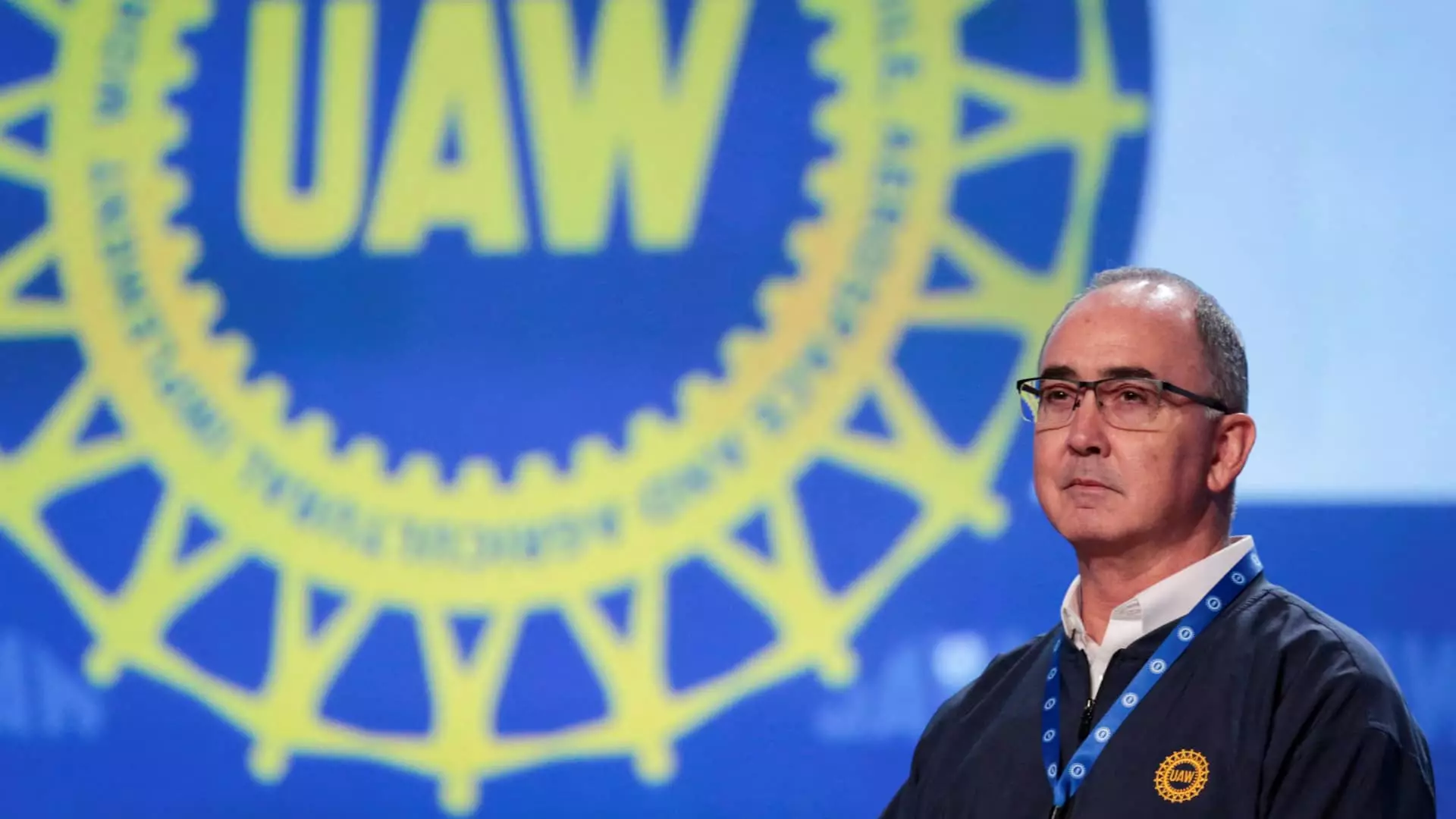The tensions between automaker Stellantis and the United Auto Workers (UAW) union have reached a boiling point, as union President Shawn Fain has ramped up his criticism of CEO Carlos Tavares. This conflict comes amidst a backdrop of declining sales, corporate accountability, and the challenges inherent in labor negotiations. Fain’s sharp remarks are not only a condemnation of Tavares’s leadership but also a call for scrutiny of the company’s practices that have resulted in diminishing returns for both workers and consumers alike.
In a recent video, Fain articulated his concerns regarding Stellantis, stating that while the company’s profits may be soaring, this success is not reflective of its operational health or the realities facing auto workers. He pointed out that pursuing high profits through what he described as price gouging is unsustainable and damaging to the long-term health of the company. Fain framed his argument with the observation that Stellantis has been selling fewer vehicles while allegedly charging more, which raises questions about its business model. “Sales are down, profits are down, and CEO pay is way, way up,” he remarked, highlighting a dissonance that many employees feel when they see their own job security jeopardized, despite the apparent financial success of their employer.
The unforeseen consequences of Tavares’s strategies have left many employees feeling uncertain about their future. Amid layoffs and shifting production strategies, the union is questioning whether the leadership could be more transparent and responsible regarding the decision-making processes that affect workers directly. Fain’s stark comment that “something is rotten at Stellantis” resonates with many employees who are anxious about job stability in a fluctuating market.
Fain’s criticism also touches on the broader context of labor relations. The UAW’s contentious negotiations with Stellantis last year revealed underlying disparities in expectations between union members and corporate executives. The assertion that Tavares is not honoring parts of the existing labor contract adds another layer of dispute. Fain cited the decision to halt the reopening of the Belvedere Assembly in Illinois as an example of this failure, reflecting deeper frustrations regarding unmet commitments that were expected to safeguard workers’ rights and job security.
The dialogue between corporate management and labor representatives is a crucial aspect of modern business, especially in industries where skilled labor is paramount. Yet, the accusations against Tavares seem to encapsulate a broader trend in which labor voices are often sidelined. With layoffs on the horizon and production schedules in flux, the stakes for workers have never been higher.
Stellantis’s leadership appears to be defensive in the face of such widespread criticism. Tavares has countered union claims by pointing at quality control issues in their production lines, suggesting that the performance problems stem from within the workforce. This characterization is not uncommon in corporate settings; however, it risks further alienating workers who are feeling the brunt of corporate restructuring. The narrative of blaming workers while executives reap the benefits of cost-cutting operations can lead to a toxic workplace culture where morale suffers, productivity wanes, and ultimately, errors proliferate.
The responses from both sides of the conflict provide a glimpse into the larger issues and initiatives currently unfolding in the American automotive industry. Stellantis’s “Dare Forward 2030” plan aimed at doubling revenue and streamlining operations reiterates a corporate commitment to profit maximization but raises critical questions about the human cost behind such initiatives. With headcount reductions already having impacted thousands of jobs, the potential for further layoffs threatens not only workforce stability but the company’s reputation in a labor market increasingly wary of corporate loyalty.
The ongoing battle between the UAW and Stellantis underscores the importance of accountability in corporate leadership. As Fain’s accusations penetrate the surface of corporate earnings reports and strategic initiatives, they serve as a reminder of the vital role labor unions play in advocating for the rights and welfare of workers. The unresolved tensions signal a critical juncture for both Stellantis and the automotive sector at large, where the past and future of labor relations will shape the contours of a rapidly evolving market. As negotiations continue and the climate becomes more contentious, both sides must grapple with finding common ground that respects the needs of workers while navigating corporate aspirations. The stakes are high, and the path forward remains fraught with challenges that require delicate handling and renewed commitment to ethical labor practices.


Leave a Reply